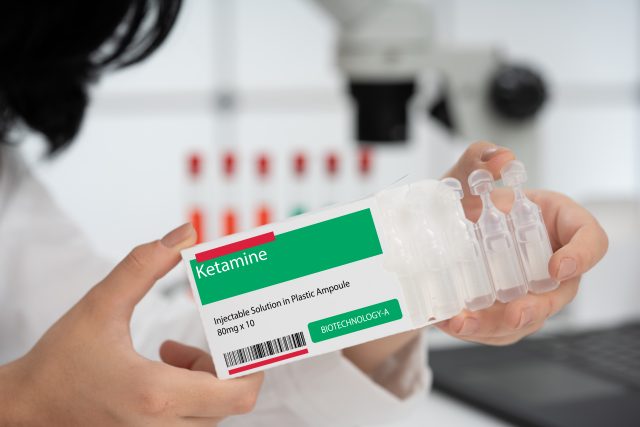
Therapy clinics offering treatment with ketamine, a dissociative drug used in medical settings for more than 50 years, have started opening up across the U.S., despite there being no nationally approved training, guidelines or curriculum for the therapists that run them, and despite the legal gray area such operations exist in.
That’s why the FDA issued a warning about the misuse of ketamine on Oct. 10. It reminded both patients and healthcare providers that ketamine therapy for depression is not approved by the FDA, that the use of these drugs without a trained healthcare professional present could put patients at serious risk, and that there is no “evidence to suggest that it is safer, more effective, or works faster than” antidepressants that have already been approved by the FDA.
The warning concludes, “Patients and healthcare providers should be aware that FDA has identified potential safety concerns associated with the use of compounded ketamine products from compounders and telemedicine platforms, including abuse and misuse, psychiatric events, increases in blood pressure, respiratory depression, and lower urinary tract and bladder symptoms.”
But ketamine has been used medically for decades. It was first approved for use in the U.S. in 1970 and was employed extensively in the Vietnam War for surgical anesthesia. To this day, ketamine is used by medics in war zones and by paramedics and doctors here in the U.S. for acute pain treatment and anesthesia. It’s even on the World Health Organization’s list of essential medicines.
Taken in sub-anesthesia doses, ketamine produces psychedelic effects. It isn’t a classic psychedelic like magic mushrooms or LSD. Rather, ketamine is a dissociative derived from the same substance as “Angel Dust.” This specific class of psychoactive drug is characterized by a state of detachment from one’s body and the external world — a state known as depersonalization or derealization. Ketamine can be a dangerous drug. Too high of a dose and a patient might enter an unresponsive state known as a “K-hole.” An overdose can be lethal.
But the drug has proven so effective at treating depression in clinical trials that in 2019 the Food and Drug Administration (FDA) approved a ketamine-based intranasal antidepressant called “esketamine.” However, the federal bureau has not approved ketamine itself for the treatment of any psychiatric disorder.
“Essentially [the FDA] is warning or notifying the public that there’s still a lot that is not understood about ketamine and how it may be [used], or whether it is useful for particular indications or off-label indications,” says Ingmar Gorman, the co-founder and chief executive officer of Fluence, a psychedelic education company training mental health professionals in psychedelic therapies (Weed Between the Lines, “Training psychedelic therapists,” Jan. 12, 2023).
Gorman says the message from the FDA is important to make sure mental health professionals are educated about what we don’t know.
Fluence came to be because of the widespread off-label use of ketamine to treat different psychiatric issues. The clinics administering the therapy were neglecting the fact that their patients were having subjective experiences.
“Those experiences can be blissful or really validating or spiritual, in which case, maybe there’s not that much support that’s needed,” Gorman says. “But then there are also some people who might have very anxious, potentially even traumatic experiences. They might experience intense dissociation, they might feel a sense of loss of control. And then it’s an adverse psychological reaction. But many therapists aren’t trained and don’t know how to deal with it.”
Today, Fluence offers training programs for therapists interested in MDMA, ketamine and psilocybin-assisted therapy. The company was selected in 2022 by the state of Oregon to be one of the state-licensed facilitators of psychedelic-assisted therapy training. Its curriculum received approval from the Oregon Health Authority and has been licensed by the Oregon Higher Education Coordinating Commission.
And it already has plans to expand to Colorado.
“It’s imperative that practitioners are well-trained and informed,” Gorman said of the recent FDA warning about ketamine. “Ensuring adherence to best practices will not only guarantee patient safety but also establish trust and credibility in this rapidly evolving sector.”














